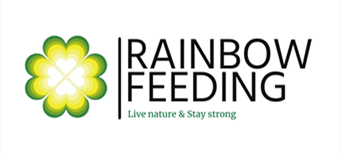Sweet Science: Licorice Extract Significantly Enhances Growth Performance of Broiler Chickens
In the ever-evolving world of poultry production, the search for natural, effective feed additives has become paramount. As consumers increasingly demand antibiotic-free poultry products, researchers and farmers alike are turning to healthier, cleaner foods. A groundbreaking study published in the Animal Nutrition Journal, conducted by Toson and colleagues, reveals that the humble licorice plant might just be one of those game-changers.
Why Licorice in Broiler Diets?
Licorice (Glycyrrhiza glabra), the plant with sweet root is used as a sweet treat or an herbal remedy, has been treasured for centuries in traditional Chinese and Greek medicine for its remarkable healing properties. Its extract contains potent bio-compounds — flavonoids, glycyrrhizin, saponins, and more — that exhibit antioxidant and anti-inflammatory activities. Today, licorice extract is finding new life in modern poultry production, and the results are nothing short of remarkable.
What the Study Did?
Researchers conducted a comprehensive study using 320 one-day-old Ross 308 broiler chicks to evaluate the effects of dietary licorice extract supplementation. These chicks were divided into four groups, with each group receiving either a standard diet (control) or the same diet enhanced with 1, 2, or 3 grams of licorice extract per kilogram of feed. Over the rearing cycle, they tracked a raft of performance indicators — weight gain, feed consumption, conversion efficiency — as well as carcass yield, blood health markers and meat quality attributes like oxidation, pH, and water-holding capacity. The results were compelling across multiple metrics. Broilers fed with licorice extract demonstrated significantly superior growth performance compared to their control counterparts.
- Increased feed consumption and faster weight gain
- Improved feed conversion, meaning less feed was required to produce each pound of meat
- Improved blood-biochemistry and antioxidant enzyme activity, meaning healthier
- Enhanced weight gain during critical growth phases
- Better meat quality — less oxidation, likely better freshness, and possibly improved texture and water retention.
Implications for the Future of Poultry Production
From a business perspective, this is a significant development. When used judiciously, it appears to offer a trifecta of benefits: improved growth, better meat yields and enhanced meat quality. Better meat yields translate into more saleable product per bird. An improved antioxidant status and meat quality result in longer shelf life, better consumer appeal, and perhaps higher pricing power. As the industry moves away from antibiotic growth promoters, natural alternatives like licorice extract offer a compelling solution that addresses multiple challenges simultaneously:
- Performance enhancement without synthetic chemicals
- Health support through improved immunity and antioxidant status
- Consumer acceptance of natural, plant-based feed additives
- Economic viability through improved feed efficiency and growth rates
If you’re engaged in broiler production, nutrition management or feed formulation, this study presents a compelling case to consider herbal feed additives — licorice extract. While these results are promising, successful implementation will require careful consideration of factors such as licorice extract quality, standardization of active compounds, and integration with existing feeding programs.
Conclusion
It may well be time to add licorice extract to the playbook. For broiler producers seeking natural alternatives that deliver both performance and quality, the incorporation of licorice extract into broiler diets represents a convergence of ancient wisdom and modern science. Additionally, further research may reveal additional benefits of licorice extract for broiler chickens.
References:
Enas Toson et. al, 2022. Efficacy of licorice extract on the growth performance, carcass characteristics, blood indices, and antioxidant capacity in broilers.

